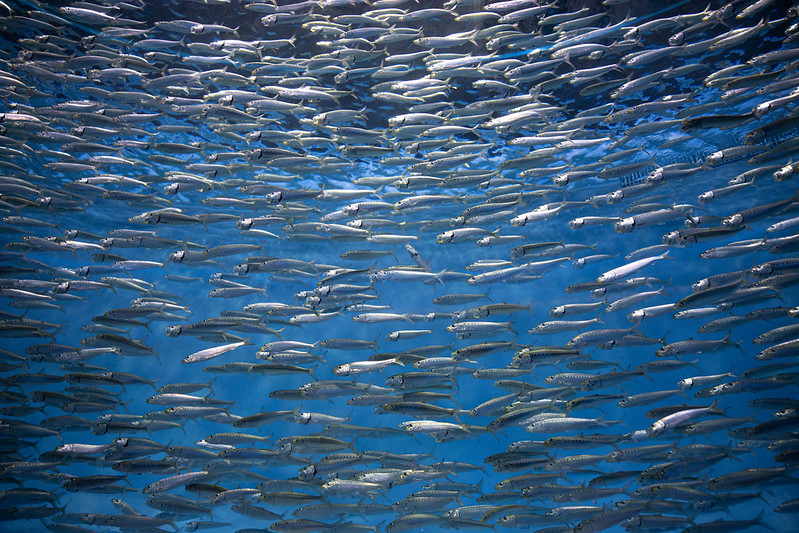NOAA On Sardine Migration And Potential Effect On California Fishing Ports
Really informative and potentially devastating report from NOAA’s West Coast region about sardines migrating north from California waters and the effect that could have on fishing ports along the coast.

Here’s a little bit about the study:
A climate-driven northward shift by sardines could cause a decline in landings of the northern sardine stock by 20 to 50 percent in the next 60 years. These changes would affect historic California fishing ports such as San Pedro and Moss Landing, according to the new research published in Fisheries Oceanography. The study did not examine whether southern sardine stock would also shift northward, potentially offsetting this decline in landings. In turn, landings at northern port cities such as Astoria, Oregon, and Westport, Washington, are projected to benefit.
Researchers examined three possible “climate futures.” The warmest had the most pessimistic outcomes, with total sardine landings in all West Coast states declining 20 percent by 2080.
The study translates environmental shifts into possible impacts on fishing communities and coastal economies. Sardines have historically gone through “boom and bust” changes in their population. Their numbers off the West Coast have remained low in recent years, with the West Coast sardine fishery closed since 2015. This research does not project changes in the abundance of sardines. Instead, it shows that climate-driven shifts in their habitat may have a significant impact on landings at historically important ports.
“As the marine environment changes, so too will the distribution of marine species,” said James Smith, a research scientist with the University of Santa Cruz affiliated with NOAA Fisheries’ Southwest Fisheries Science Center. “But linking future changes in the distribution of species with impacts on the fishing fleet has been challenging. Hopefully our study can provide information about potential impacts in coming decades, and thereby inform strategies to mitigate these impacts.”



